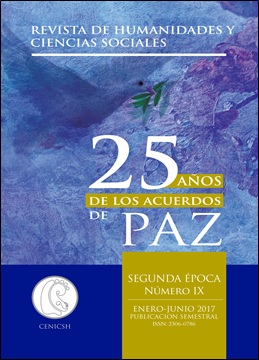Authoritarian and democratic power practices in El Salvador. Trends in the past and in the present.
DOI:
https://doi.org/10.5377/rhcs.v0i9.6624Keywords:
Political culture, tradition and change, authoritarianism and democracy.Abstract
This essay presents a short version of a study of trends in political culture in El Salvador, built on the basis of a bibliographical review and some primary sources, which runs a long period from the late Spanish monarchic stage to the present history. Here it is maintained that the practices of power in El Salvador have recurrently tended towards authoritarianism, under hierarchical forms and vitiated in the framework of a weak institutionality, and within a political system based on the practice of privileges, social, cultural inequality and economic. Attributes formed in a long time despite the changes towards a democratic legal order, thus building a political culture strongly rooted in custom, which is not only appreciated in the high spheres of power, but also see its reproduction in the middle and small spaces.
Revista de Humanidades y Ciencias Sociales, n° 9, january-june 2017: 57-94
Downloads
881

